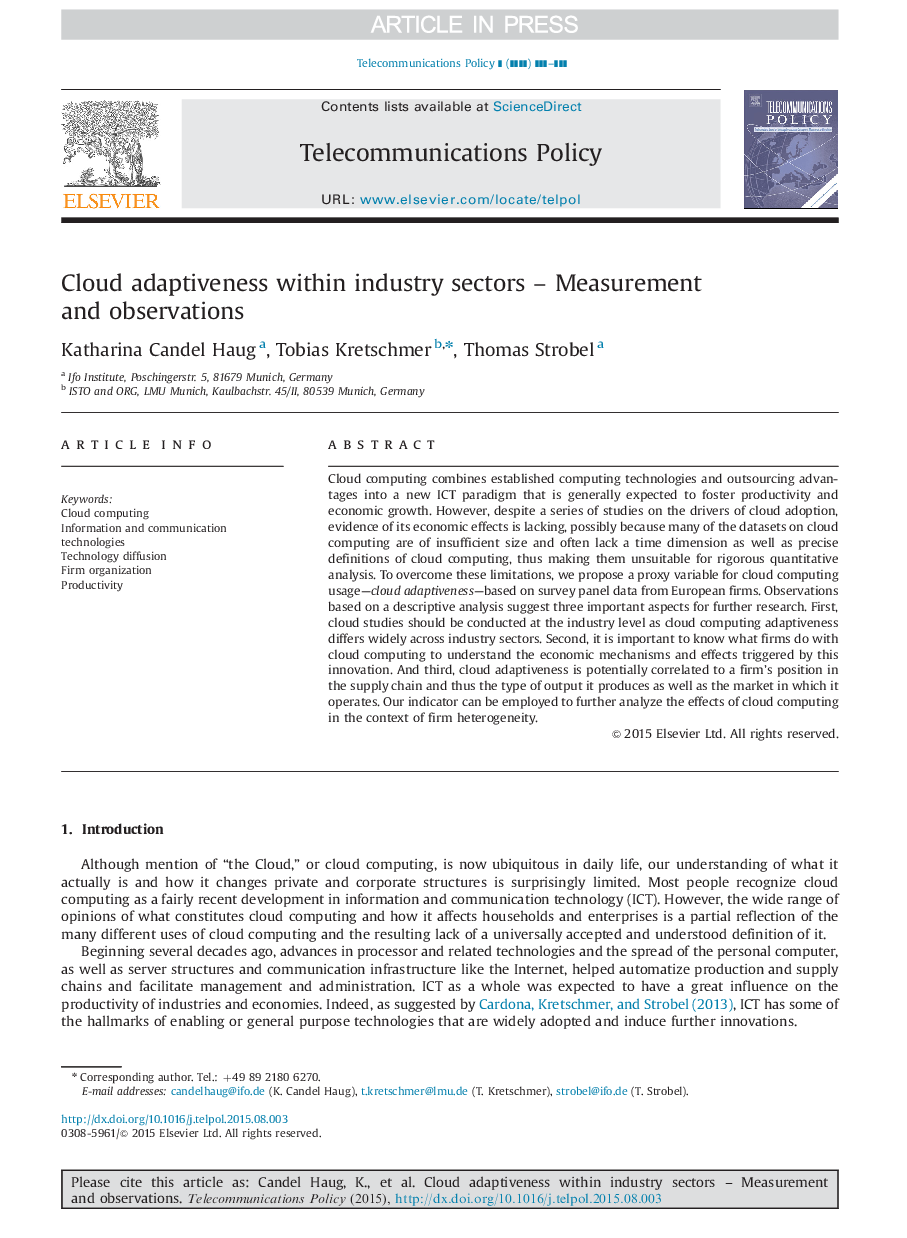| Article ID | Journal | Published Year | Pages | File Type |
|---|---|---|---|---|
| 10368228 | Telecommunications Policy | 2016 | 16 Pages |
Abstract
Cloud computing combines established computing technologies and outsourcing advantages into a new ICT paradigm that is generally expected to foster productivity and economic growth. However, despite a series of studies on the drivers of cloud adoption, evidence of its economic effects is lacking, possibly because many of the datasets on cloud computing are of insufficient size and often lack a time dimension as well as precise definitions of cloud computing, thus making them unsuitable for rigorous quantitative analysis. To overcome these limitations, we propose a proxy variable for cloud computing usage-cloud adaptiveness-based on survey panel data from European firms. Observations based on a descriptive analysis suggest three important aspects for further research. First, cloud studies should be conducted at the industry level as cloud computing adaptiveness differs widely across industry sectors. Second, it is important to know what firms do with cloud computing to understand the economic mechanisms and effects triggered by this innovation. And third, cloud adaptiveness is potentially correlated to a firm's position in the supply chain and thus the type of output it produces as well as the market in which it operates. Our indicator can be employed to further analyze the effects of cloud computing in the context of firm heterogeneity.
Keywords
Related Topics
Physical Sciences and Engineering
Computer Science
Information Systems
Authors
Katharina Candel Haug, Tobias Kretschmer, Thomas Strobel,
